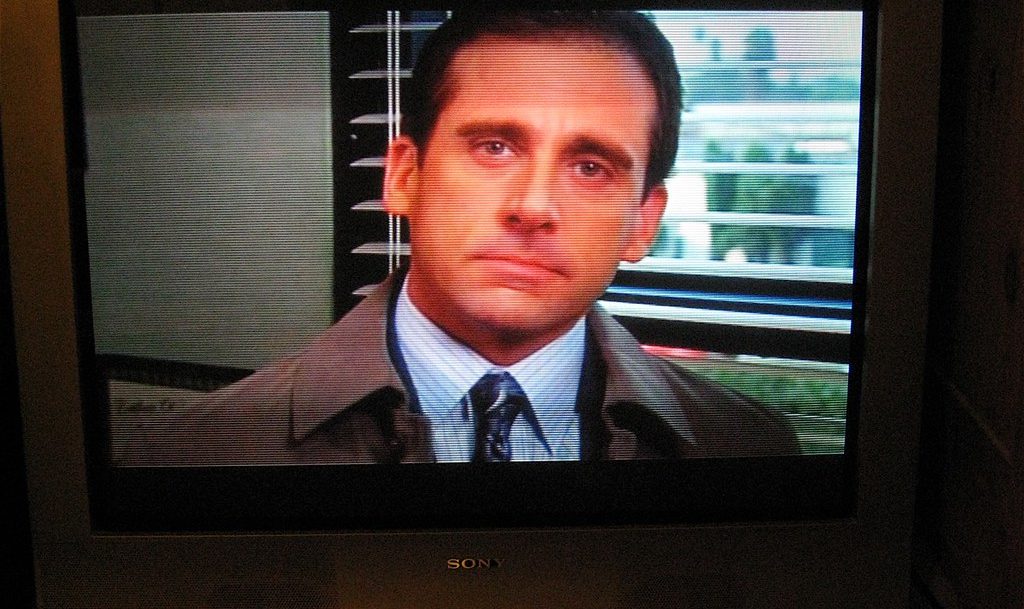Why do we still love The Office?
Having concluded over a decade ago, The Office continues to be an iconic part of American pop-culture. Scenes from the show still form part of contemporary meme culture, and its popularity has extended globally: until just recently, the sit-com was the most-streamed TV series on the entire planet.
Set at fictional Scranton paper-supplier Dunder Mifflin, many aspects of The Office are out of line with the realities of office life. Bright lights adorn the set, creating an air of optimism. Essentially every single major character, ranging from the mysterious Creed Bratton to the intellectual titan that is Kevin Malone, is quirky in some way or another. In a conventional workplace, Michael Scott would have been fired a long, long time ago. In this regard, the show clearly juxtaposes its British counterpart, which is grey, dull, and eminently realistic.
Not only does this weirdness make the show entertaining, but it makes The Office a source of escapism – a perfect watch on a day otherwise full to the brim with stress and tension.
The Office excels at harmonising the eccentric and the everyday
That being said, key aspects of the show are deeply relatable, in particular the central couple of the story; Jim and Pam. They are beacons of normality in a sea of peculiarity. Jim’s iconic stares at the camera hammer this point home. What makes the two characters resonate especially is their inertia. Both Jim and Pam have lofty aspirations, but for the most part have resigned themselves to working unfulfilling jobs in a declining industry. Importantly, they seem to be deeply aware of this fact.
Pam is a talented artist yet does little to seriously pursue this as a career. She briefly attends art school in New York City but proceeds to drop out soon after. Jim, on the other hand, only starts to work towards his dreams in the show’s final season. Their experiences speak to how remaining in one’s comfort zone can inhibit self-actualisation – something I think many people can identify with.
Overall, these aspects indicate something crucial about the show’s success: The Office excels at harmonising the eccentric and the everyday. It’s weird and bizarre enough that it’s a fun, escapist watch – yet realistic and relatable enough that we can root for and identify with its characters.
The show clearly wouldn’t be the same without its cast
Other things count for a lot too. The show clearly wouldn’t be the same without its cast; Steve Carell deserves praise, in particular. With his portrayal of Michael Scott, he makes The Office tick, and it’s clear that he has a deep understanding of his character. The show’s rapid decline after his departure in season seven attests to this.
Moreover, all nine seasons are filled with heartwarming relationships. The chemistry between Jim and Pam’s actors – John Krasinski and Jenna Fischer respectively – is off the charts, creating many a sweet moment. Jim and Dwight’s ‘frenemy’ dynamic also hits home. The two have a clear rivalry, and Jim frequently incites Dwight’s ire with his pranks. That being said, there is the occasional moving moment in the show, such as Jim’s heart-to-heart with Dwight in the office building’s stairwell and Dwight’s choice of Jim as his best man, that make it clear the two genuinely care about each other.
More broadly, each of the show’s four main characters undergoes a process of continual self-development as the show progresses. The most dramatic of these, by far, is Michael’s – who is infinitely more mature and likeable by his departure compared to the show’s beginning. It’s hard not to find that satisfying as a viewer.
Ultimately, The Office succeeds at melding together humour, comfort, and realism. Alongside a fantastic cast, this lies at the core of why so many people – myself included – will continue to watch (and re-watch, and re-watch again) its episodes in the years ahead.

Comments